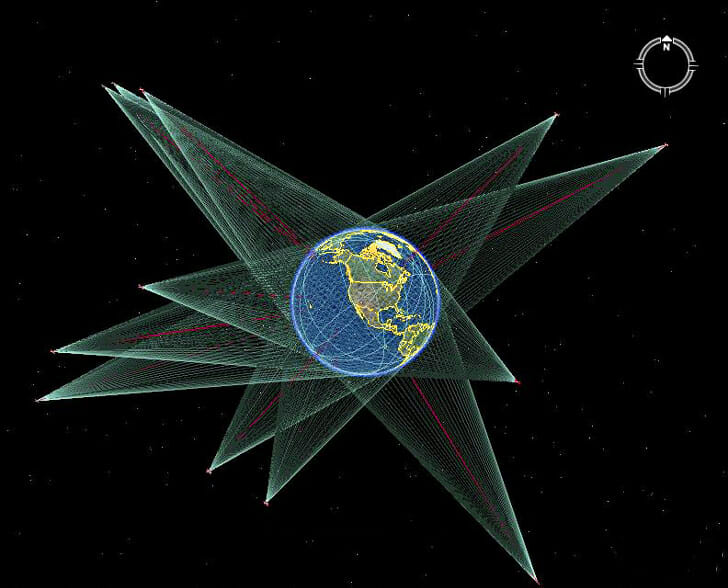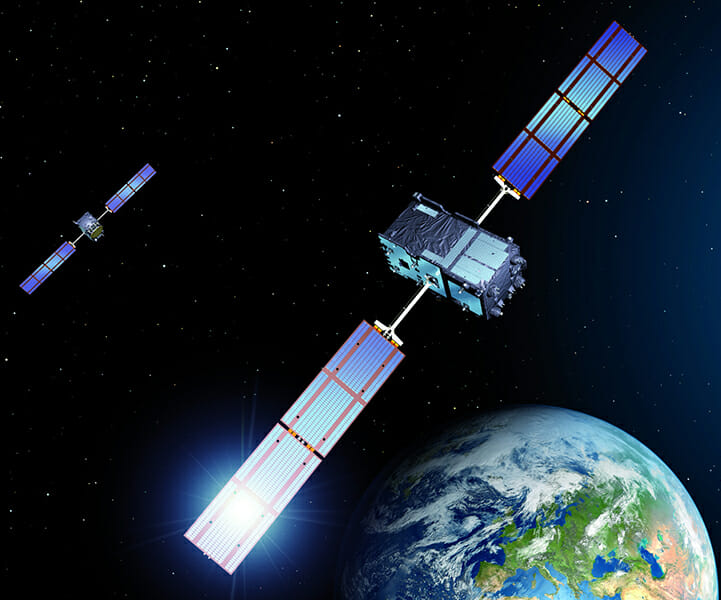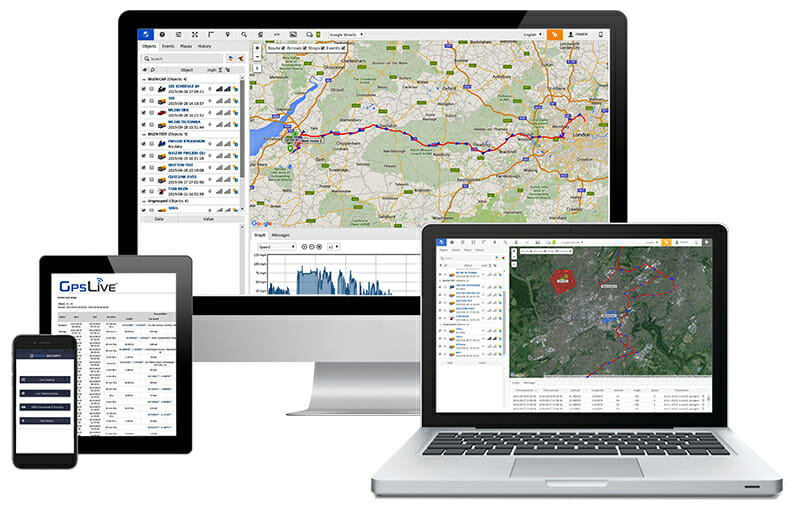Global Positioning System–GPS is no longer a buzzword today. GPS technology is one of the most valuable technological breakthroughs till date, benefiting everyone. In fact, GPS technology is so diverse that you can find its applications in almost every industry. Initially used for military purposes, today, Uber and delivery service providers rely on GPS to provide efficient services to customers.
You can even find your pet if it wanders off or if your kid gets lost. Using a GPS tracking device, you can get exact location details and find them as soon as possible. While many know the benefits of GPS technology, they don’t know how well it works. People have many questions–what is the precision of GPS, how good is GPS tracker accuracy, how much investment is needed, etc.

But the US Department of Defense takes care and pays for the maintenance of satellites that support GPS technology. This means you can use it for free, but if you want to use a tracker, you’ll have to buy a GPS tracking device. Here’s a guide that can answer accuracy and reliability questions about GPS.
Precision of GPS
The precision of GPS (Global Positioning System) refers to the level of distance GPS displays to the actual location of the tracked object. The key points and benefits of a GPS device are its accuracy, precision, and reliability. The Global Positioning System (GPS) faults and errors can be decreased to a sufficiently small amount, and the system offers excellent results for business-oriented purposes.
For any GPS Unit to work, the antennae requires a crystal-clear look at the sky to connect to the satellites. That’s why GPS won’t work inside buildings. GPS devices calculate your location by analysing the distance between the GPS tracking receiver and at least four more GPS System satellites.
The geostationary satellites regularly broadcast radio impulses to the GPS Tracking devices, allowing location computations to happen. Initially, GPS started as a military services guidance system; however, over the years, it developed into an advanced navigation and location system. GPS receivers are now considered consumer electronics; today, almost every fleet company utilises GPS tracking devices in their vehicles.

Reliability of GPS
There are a variety of factors affecting accuracy and reliability regardless of what GPS receiver is being used for. The GPS radio signals go through different air and weather conditions while travelling to the Earth, and these conditions can often delay the GPS signals and therefore affect the accuracy of a GPS Tracker. The geometry of the geostationary satellites used will likely differ with time as well.
The GPS system has a more extensive selection of satellites available if you are out in the centre of a large field, as opposed to sitting in a cafe in London, UK. You will get much better positions if the geostationary satellites you happen to be linked onto aren’t grouped in one part of the sky.
Therefore, the more sky view you have, the more satellites you link with and the more precise your GPS tracking device will be. Cities and metropolitans can also cause glitches in GPS tracking where the GPS Tracking signals can bounce off of the buildings. For vehicle GPS tracking devices, the accuracy has to be sufficient to track the positioning against the identified map saved in the GPS Tracking platform.
The A-GPS receivers on Apple iPhones have progressively enhanced from the iPhone 3 to the iPhone 7 in the past years. A-GPS is probably the most precise of the three GPS programs on your smartphone. A-GPS System functions differently than typical portable GPS Tracker Device receivers.
The guidance location is provided by the cell phone network. When linked to a cellular network, the mobile phone will download information regarding the actual locations of satellites. This allows the phone to lock in on a location of a satellite a lot more swiftly than it could in any other case.
The GPS features of a cell phone can still be utilised if the cell network is inaccessible at that given time. Having said that, when disconnected from a network, your smartphone will require several minutes to establish a link to 4 satellites to determine the GPS location.
Accuracy of GPS
The effectiveness of a GPS signal is presented in decibels. By the time the signals have travelled the 22,200km from the GPS satellite to Earth’s surface, the sign gets weaker, as poor as –125dBm to –130dBm, even during clear open skies. In the city, developed urban environments, or below forest cover, the signal can fall to as low as -150dBm.
For the signal presentation, the greater the negative value, the less strong the transmission is. At these low levels, some GPS devices may have difficulty obtaining a working link but might be able to continue GPS tracking if a signal was initially acquired in the open environment. A high-quality and sensitive GPS receiver can receive signals from satellites down to −155 dBm, and tracking can be carried down to ranges approaching −165 dBm.
The GPS System receiver collects data from every satellite to determine the distance and location. The receiver initially calculates the time these GPS signals have taken to reach the device. It does this by subtracting the difference between the time the signal was sent and the time contained in the signal message.
Then it calculates the time the signal was acquired using an internal time clock.
Because the signals travel at the speed of light, even a 1-millisecond miscalculation means a 300km inaccuracy of the calculated distance. To reduce this tiny error level, you would need an atomic clock.
However, not only is this impracticable for consumer GPS tracker products, the GPS System satellites provide signals only about every 10 nanoseconds, during which time a signal would travel 3 metres, which in total leads to a significant error. It is for this reason that at least four GPS satellites are necessary, and the extra satellites are utilised to correct the mistakes and glitches.
Although hardly ever released to the media, the GPS Tracker device receivers must include coded error correction algorithms. In textbooks, one GPS satellite seems to provide the correct location, but in reality, signs must be received from a minimum of 4 satellites in order to be accurate for glitches.
As mentioned previously, the more satellites found in determining your position, the higher the accuracy, precision, and reliability level. As GPS satellites orbit around planet Earth, the number of satellites in line of sight under optimal circumstances naturally varies.
Obviously, the positioning of the satellites is totally out of our hands, yet it’s worth identifying this as an element impacting precision. For instance, this is one of the many reasons two GPS Device tracks recorded at different times will differ. If you have time, it may be worth documenting a track a second time or even more and calculating the results.
Conclusion
A new generation of satellites is being launched that promise a significant improvement in not just the accuracy but also the availability of GPS. Designated as GPS III, a group of 30 new satellites will replace the currently ageing satellites that have been placed in orbit in the past 40 years. This means, GPS tracking is here to stay.

Rewire Security offers their customers high-quality GPS tracking devices and reliable GPS tracking software that is precise and accurate up to 1 – 2 metres. Many people believe that smartphones can offer GPS benefits, but standalone devices like Rewire Security’s trackers are more accurate than your smartphone. Such devices can help you get precise location details of your cars, inventory, kids, pets, or valuables.
FAQ’s
Is GPS always reliable?
It is very unusual for GPS to be unreliable, providing utmost accuracy. GPS devices’ accuracy is said to be 2 metres circular error probability (CEP), which implies that it is reliable within 2 metres. However, technological advancements can help manufacturers to increase reliability by leveraging artificial intelligence algorithms. But other factors, like satellite maintenance, GPS hardware, radio interference, etc., can affect GPS reliability.
What is the precision of GPS?
Precision refers to the level of closeness of the same measurements of the same quantity to each other. It means how often a receiver can allot a point within the sphere of accuracy and if that sphere is set up around the actual point. But GPS precision is said to have 95–98% precision.
How accurate is GPS positioning?
There are more than 24 GPS satellites around the Earth, transmitting time and location through radio frequencies. The GPS device grasps these radio signals and calculates the location using the triangulation of at least three satellites. Generally, GPS positioning provides an accuracy of 99%. Sometimes, faulty data elements and discrepancies are from one incorrect reading. But when the incoming data increases, the accuracy improves.
However, GPS drift and signal bounce can affect the accuracy of the GPS. Drift takes place when there are changes in the satellite constellation patterns or the device is in a weak reception area. On the other hand, a signal bounce occurs when the radio frequencies are disrupted due to large objects. Tall buildings, mountains, or sometimes atmospheric conditions will cause the signals from the satellites to bounce off of these structures and result in inaccurate calculation of the signal’s timing, eventually leading to the wrong location of the GPS device.


